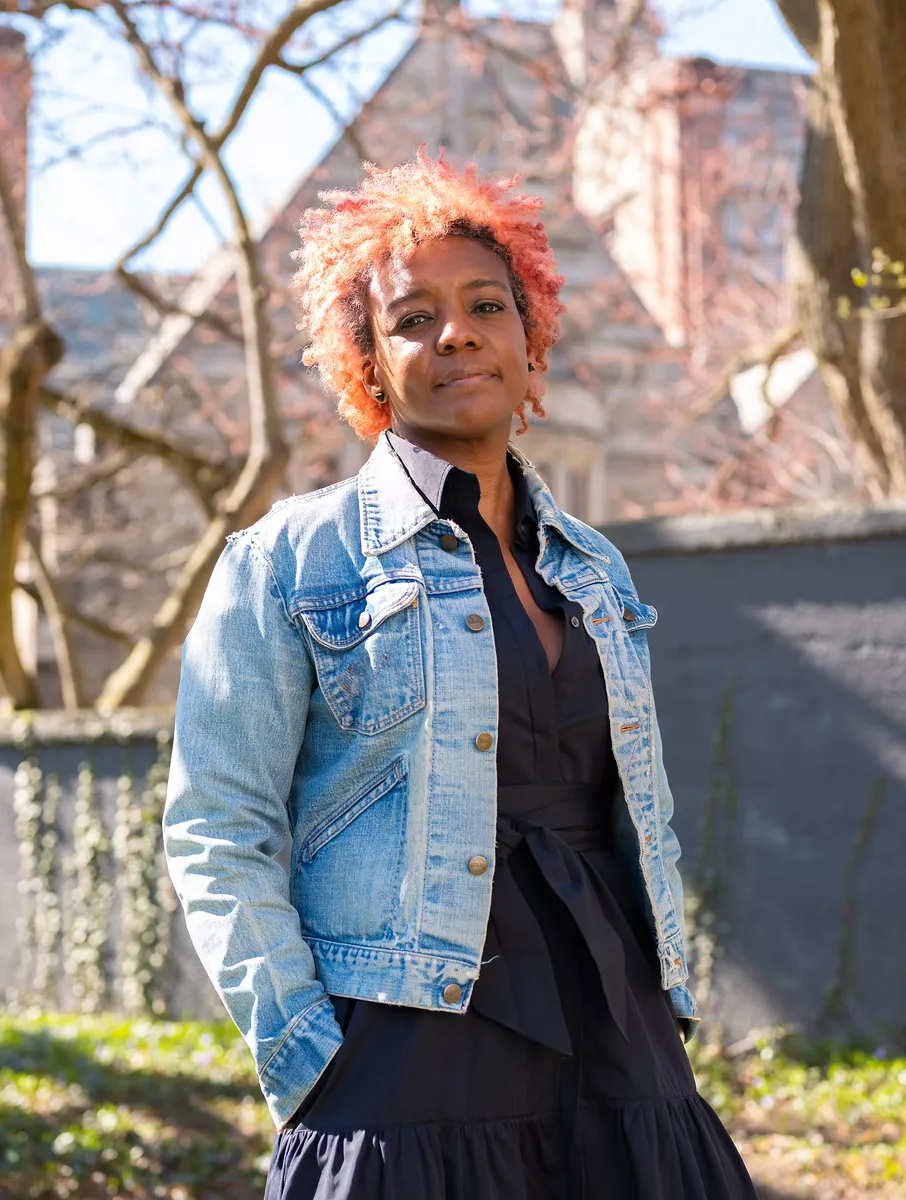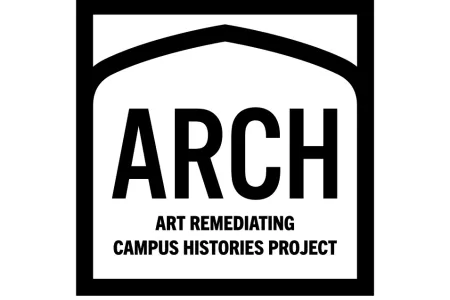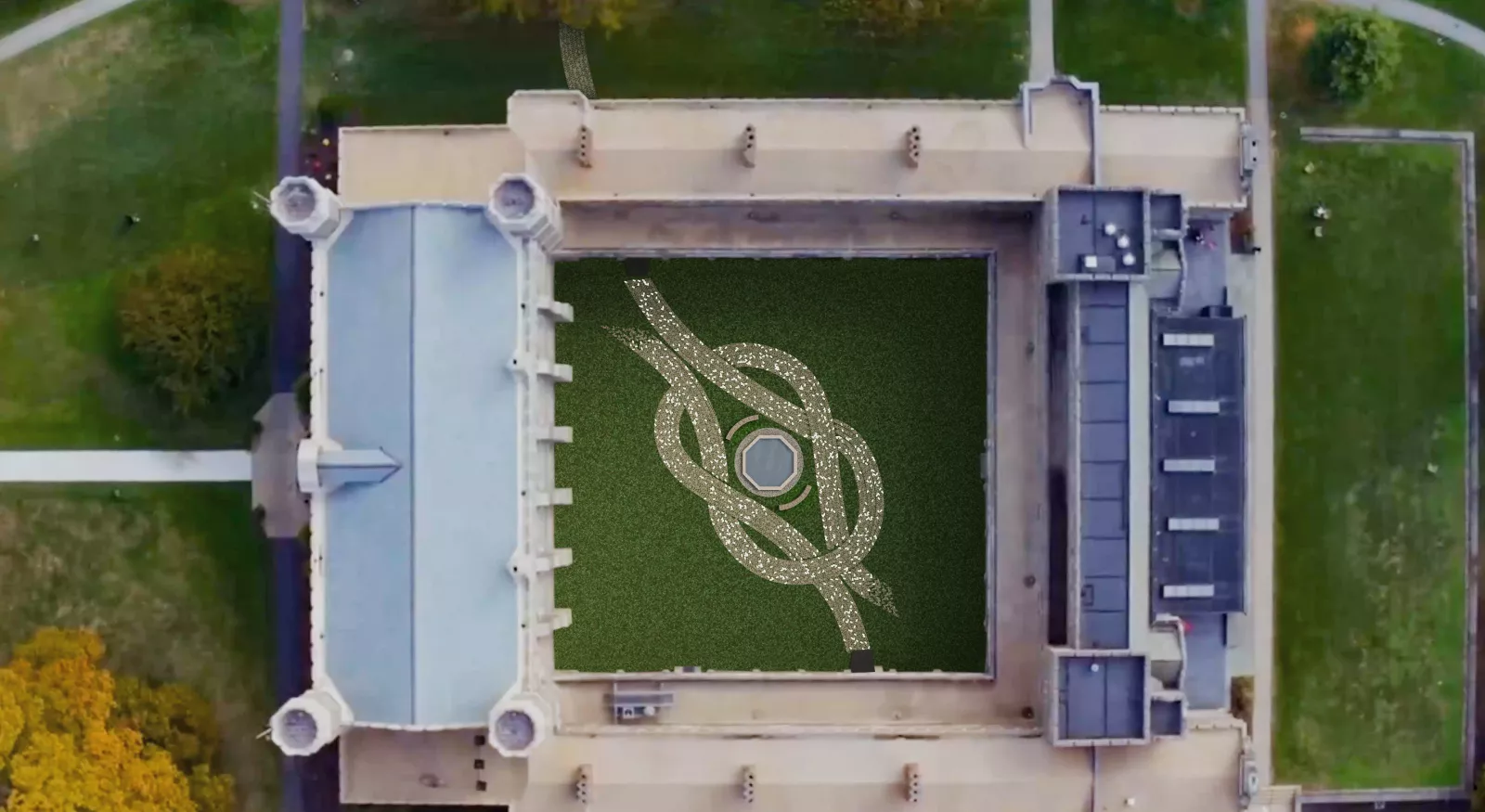Nekisha Durrett Selected to Create Monument That Responds to Legacy of Exclusion

Bryn Mawr College has selected Nekisha Durrett to create a monument addressing a legacy of exclusionary practices at the College and enabling the campus community to respond to the question, What stories are missing from Bryn Mawr College? Durrett's monument is the centerpiece of a collaboration between Bryn Mawr and Monument Lab known as The ARCH (Art Remediating Campus Histories) Project.
Durrett’s campus monument, titled Don’t Forget to Remember (Me), will be placed in the Cloisters at the center of Old Library and contribute to a broader effort of historical reckoning. In March, the College’s board approved the removal of the inscribed name of M. Carey Thomas, Bryn Mawr’s first dean and second president from the entryway of the building. Thomas’ racist and anti-Semitic views excluded many from attending Bryn Mawr and her legacy caused pain for generations of students, staff and faculty.
In her proposal, Durrett describes how the project will use terracotta pavers to create pathways in the Cloisters’ courtyard which, when seen from above, create a woven path that “takes the shape of a knot that cannot be undone, symbolizing interconnectivity, and making visual that Bryn Mawr is reexamining its history to tell all of its stories.” Engraved pavers will include the names of those Black staff whose work was critical to building and operating the College, particularly in its early decades, but whose contributions were historically unrecognized.
“I am thrilled beyond measure to be part of the internal work that the Bryn Mawr community has been carrying out under the stewardship of Monument Lab and the sustained, consistent and persistent efforts of the BIPOC student community across generations,” says Durrett. “I am so eager to get to the important work of mining the archives to illuminate those individuals who were worthy of witness and reverence.”
The idea to commission a memorial or public artwork tied to Bryn Mawr’s legacy of exclusion, with a particular focus on reclaiming Old Library, was first made by the Telling Bryn Mawr Histories Work Group in June of 2019. Interrupted by the COVID-19 pandemic and informed by experiences that were shared by students during the student-led strike of fall 2020, planning for the project began again during the 2021–22 academic year when Bryn Mawr partnered with Monument Lab on leading the engaged process, artists’ open call, and production of the eventual artwork.
During the 2021–22 academic year, Monument Lab staff worked with paid student researchers on an intensive community engagement process. A call for artist proposals was released in October of 2022 and five finalists were selected to visit campus, develop in-depth proposals, and publicly present their concepts for campus community feedback in March. Alumnae/i and other community members unable to attend in person were able to watch a live stream of the presentations or recordings made available online.
“Durrett’s Don’t Forget to Remember (Me) offers Bryn Mawr College a visionary new site and symbol for the campus. It is grounded in Durrett’s commitment to elevating stories of historical meaning that are far too often overlooked or swept aside, as well as her engagement with campus-based research and activism by students, staff, and faculty exploring legacies of exclusion at the College. Don’t Forget to Remember (Me) illuminates a path for truth-telling, healing, and ongoing acknowledgment,” commented Paul Farber, Monument Lab co-founder and director.
The installation is scheduled to be completed during the 2024-25 academic year. A dedication ceremony is being planned that will include a multi-disciplinary symposium on issues related to the artwork and project.
“When the Histories Work Group made their initial recommendation, they spoke of Old Library as a ‘wounded building’ and of the need to heal and transform the space,” says Bryn Mawr President Kim Cassidy. “Nekisha’s design acknowledges those wounds, lifts up what has been lost, and will transform how we experience this space. I look forward to it playing a central role in future opportunities for our community to work toward reconciliation and repair as we strive to create a more inclusive and welcoming campus.“

Bryn Mawr College’s ARCH Project (Art Remediating Campus Histories), in partnership with Monument Lab, is a multi-year collaboration to design a process and commission a campus public artwork that responds to the legacy of exclusionary practices at the College. This vital work builds on previous and ongoing College-supported efforts by students, staff, alumni, and faculty to reveal and repair harm, ensuring a reckoning with Bryn Mawr College’s history and a clear-sighted look at the way to a future of inclusion and reconciliation.
